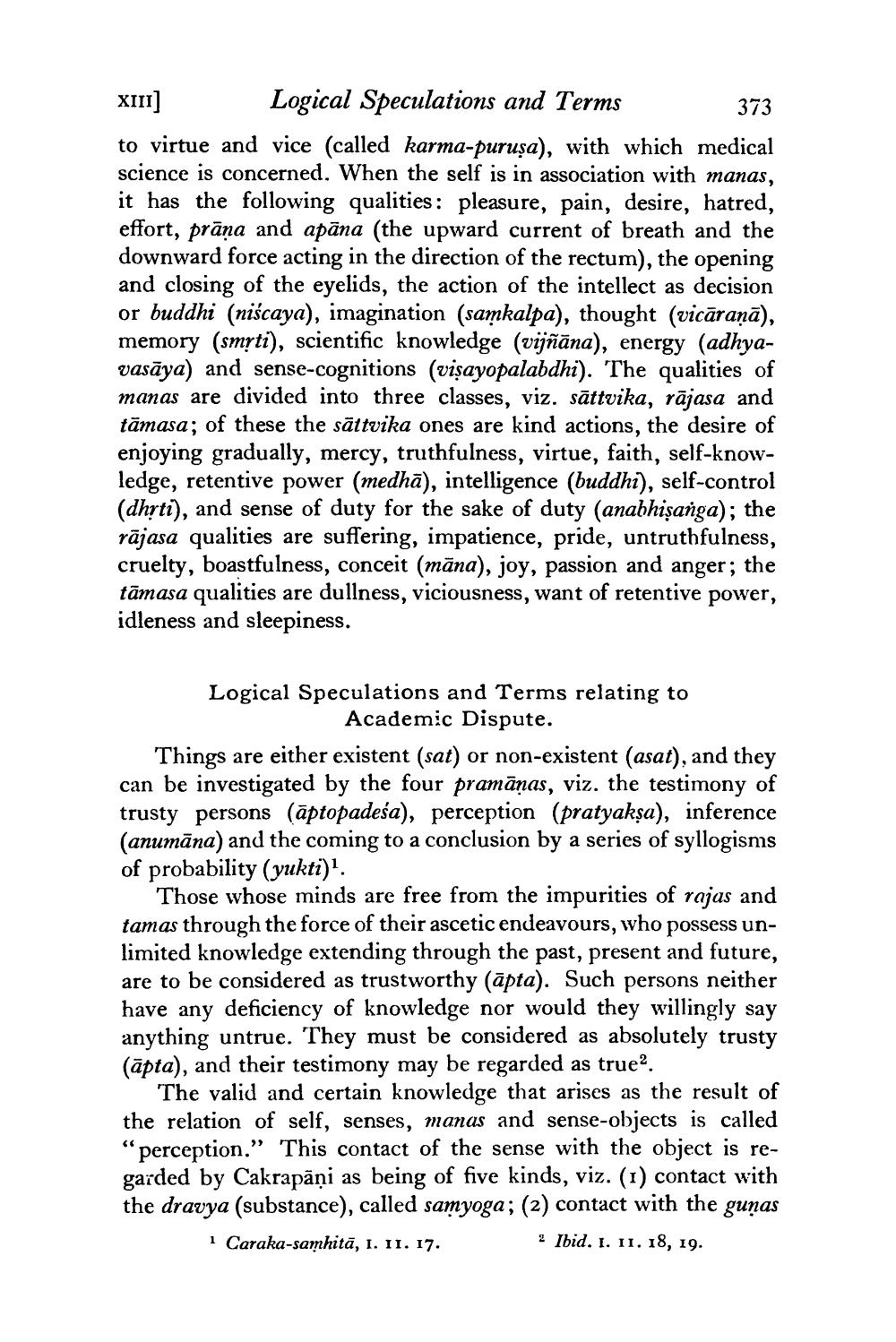________________
XIII]
Logical Speculations and Terms
373
to virtue and vice (called karma-purușa), with which medical science is concerned. When the self is in association with manas, it has the following qualities: pleasure, pain, desire, hatred, effort, prāṇa and apāna (the upward current of breath and the downward force acting in the direction of the rectum), the opening and closing of the eyelids, the action of the intellect as decision or buddhi (niscaya), imagination (samkalpa), thought (vicāraṇā), memory (smrti), scientific knowledge (vijñāna), energy (adhyavasaya) and sense-cognitions (viṣayopalabdhi). The qualities of manas are divided into three classes, viz. sättvika, rājasa and tāmasa; of these the sättvika ones are kind actions, the desire of enjoying gradually, mercy, truthfulness, virtue, faith, self-knowledge, retentive power (medha), intelligence (buddhi), self-control (dhrti), and sense of duty for the sake of duty (anabhiṣanga); the rājasa qualities are suffering, impatience, pride, untruthfulness, cruelty, boastfulness, conceit (māna), joy, passion and anger; the tāmasa qualities are dullness, viciousness, want of retentive power, idleness and sleepiness.
Logical Speculations and Terms relating to Academic Dispute.
Things are either existent (sat) or non-existent (asat), and they can be investigated by the four pramāņas, viz. the testimony of trusty persons (aptopadesa), perception (pratyakṣa), inference (anumāna) and the coming to a conclusion by a series of syllogisms of probability (yukti)1.
Those whose minds are free from the impurities of rajas and tamas through the force of their ascetic endeavours, who possess unlimited knowledge extending through the past, present and future, are to be considered as trustworthy (apta). Such persons neither have any deficiency of knowledge nor would they willingly say anything untrue. They must be considered as absolutely trusty (apta), and their testimony may be regarded as true2.
The valid and certain knowledge that arises as the result of the relation of self, senses, manas and sense-objects is called "perception." This contact of the sense with the object is regarded by Cakrapani as being of five kinds, viz. (1) contact with the dravya (substance), called samyoga; (2) contact with the gunas
1 Caraka-samhita, I. 11. 17.
2 Ibid. 1. 11. 18, 19.




